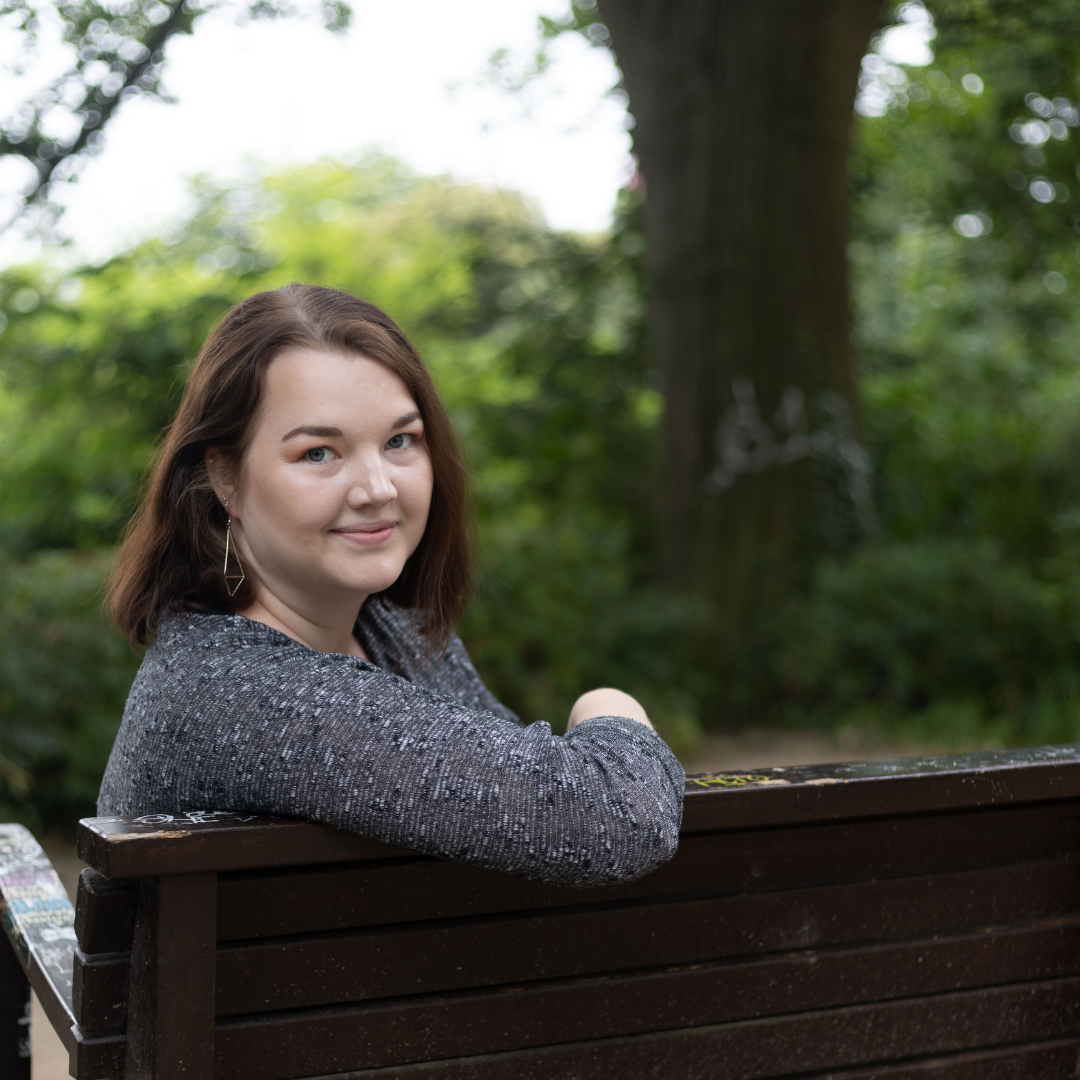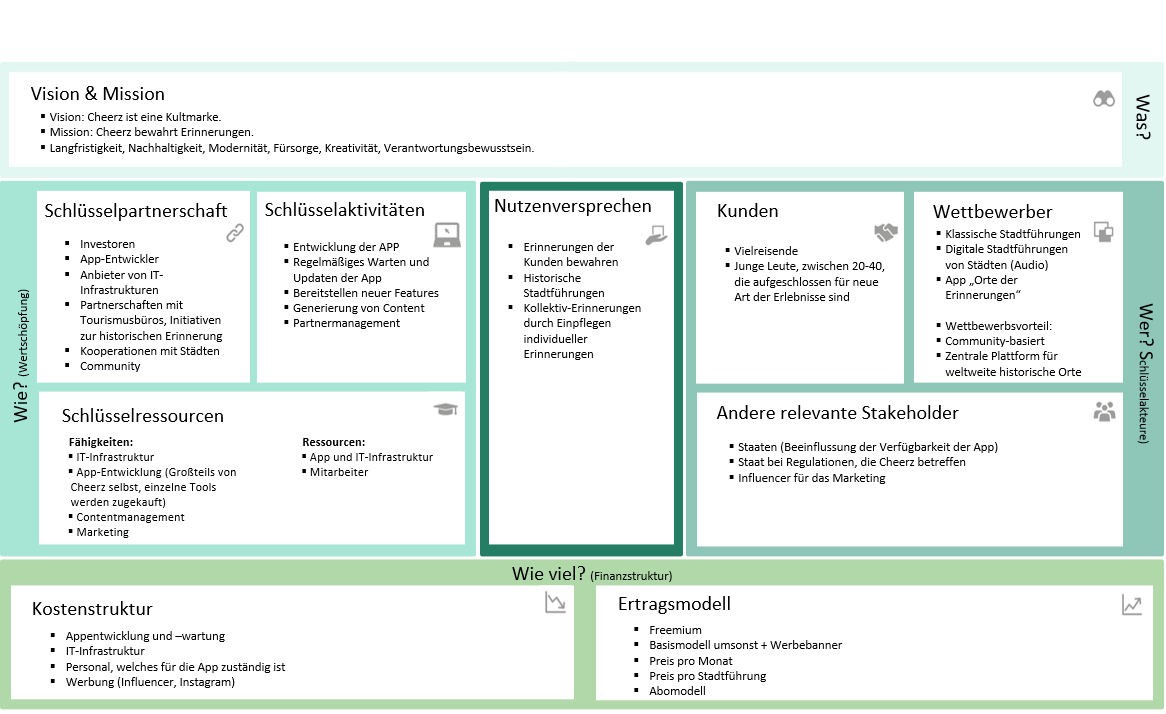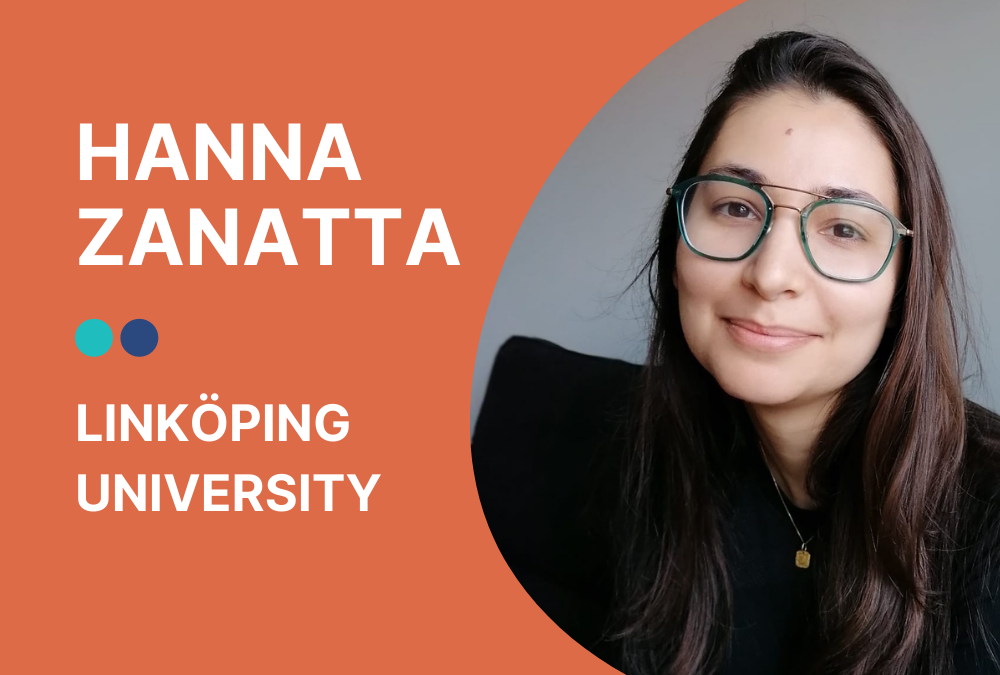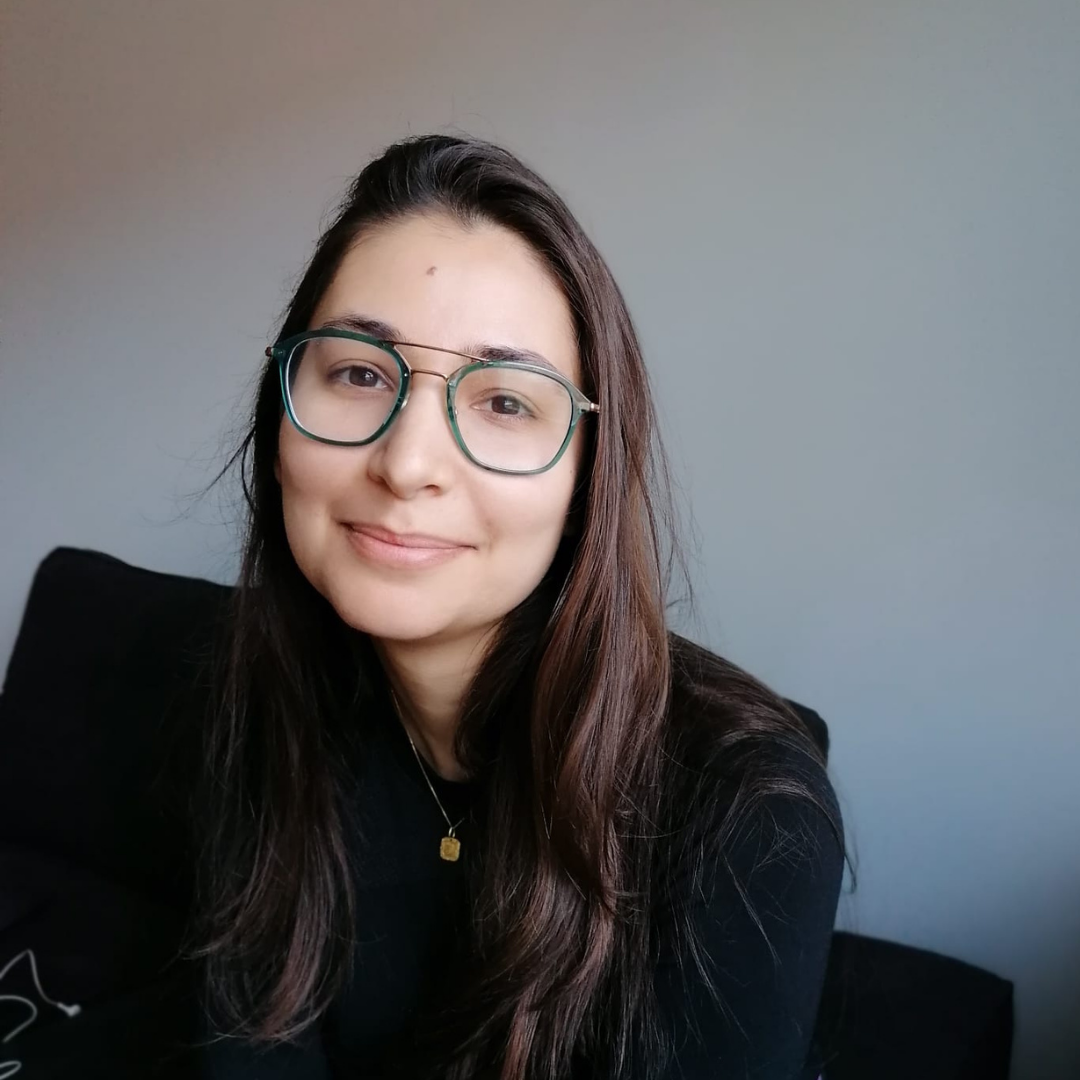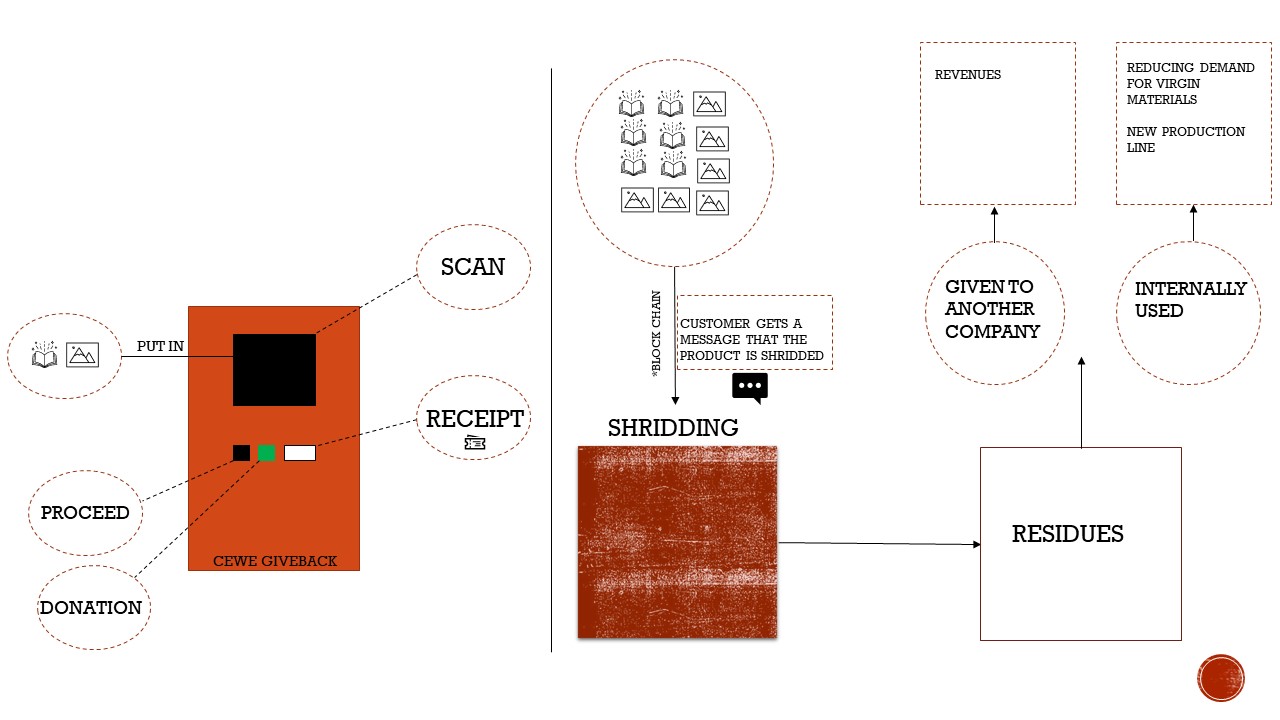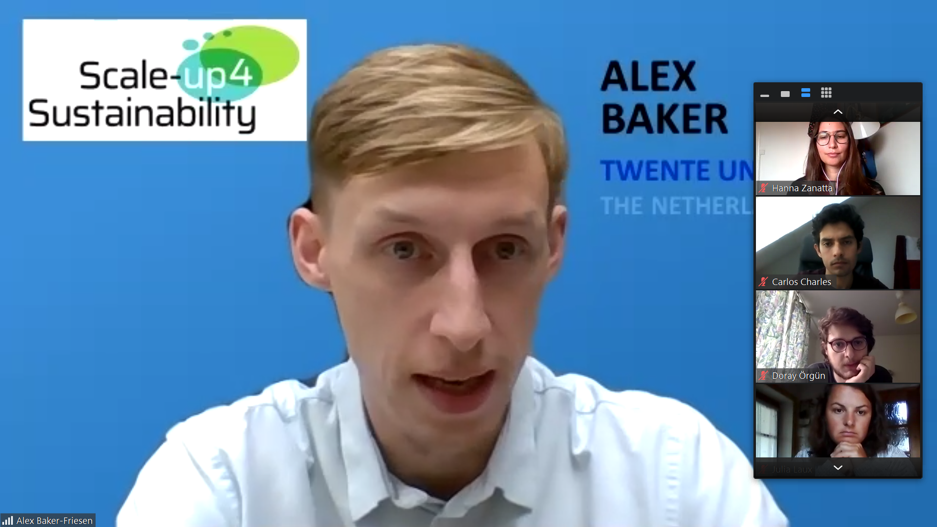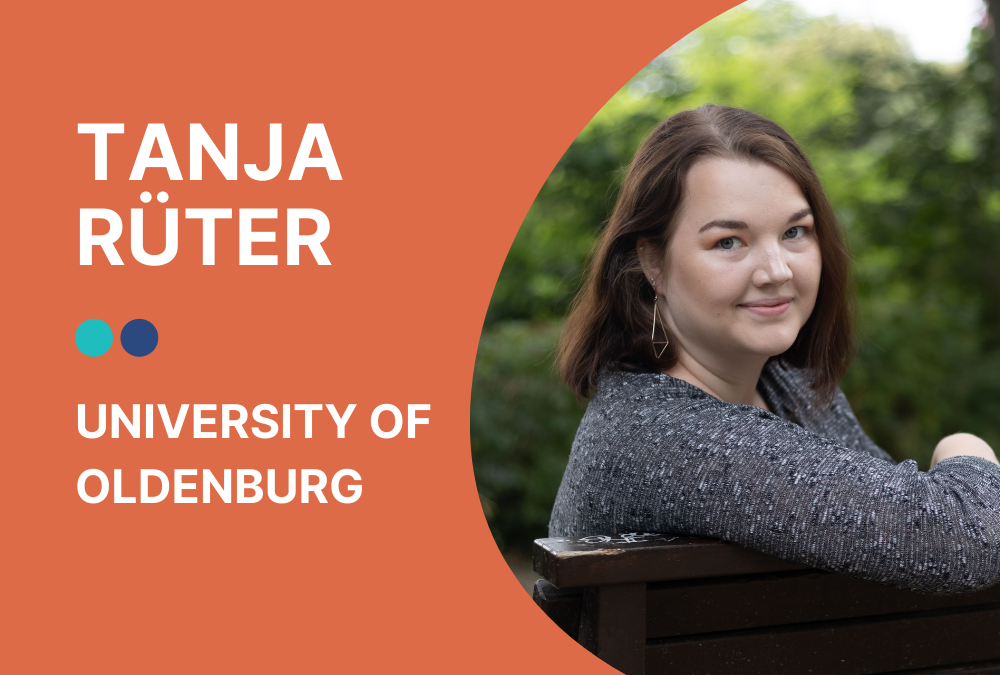
“Our different study backgrounds helped us to bring diverse perspectives to the table”: Tanja Rüter, University of Oldenburg
“Our different study backgrounds helped us to bring diverse perspectives to the table”: Tanja Rüter, University of Oldenburg
Tanja Rüter is a Sustainability & ESG Consultant and former student in the Master’s programme in Sustainability Economics and Management at the University of Oldenburg in Germany. Last year, she participated in the challenge-based ‘Sustainable Venturing’ module which was organised as part of the ScaleUp4Sustainability project. We spoke to Tanja Rüter about her motivation to participate and her experience with the challenge.
Months
Student Teams
Company
How did you find out about the challenge and why did you decide to take part?
Tanja Rüter: I was looking for a final elective module to take in my master’s programme when I came across the ‘Sustainable Venturing’ module. The module appealed to me right away because of its practice-oriented approach. It offers students the opportunity to work together with businesses on the sustainability of their business models. While I had already become familiar with other hands-on learning formats during my studies, I found it exciting to participate in a challenge-based course over a longer period of time – in this case more than four months. Besides, I liked the course’s thematic focus. Sustainable entrepreneurship is more relevant than ever – so I signed up!
What was the task of the challenge and what did you specifically do there?
Tanja Rüter: At the beginning of the module, we were tasked with analysing and readjusting CHEERZ’s existing business model, taking sustainability criteria into account. The challenge was formulated by the photo printing company CHEERZ, a French subsidiary of CEWE – Europe’s largest photo service provider, together with the lecturers at the University of Oldenburg.
My team started by analysing the company’s existing business model using the Sustainable Business Model Canvas. We went on to apply the lead user method which aims to integrate the customer perspective into innovation processes from the onset. Here, the focus is primarily on customers who are considered advanced users. It’s a very comprehensive method, so we decided to simplify it a little for the purpose of the task.
Once we had identified some lead users, we invited them to a digital workshop format we developed. The workshop served to engage the lead users in brainstorming and generating customer-focused solutions. We used Miro, an online tool that facilitates creative collaboration. Here, we also provided the lead users with input on the topic of sustainability.
The next step was to evaluate the many ideas generated during the workshops. We used another great tool – the innovation radar – to analyse the ideas in terms of sustainability and other criteria. This helped us to identify the best ideas based on which we eventually developed a sustainability-oriented business concept. We proposed the app “Preserving Memories” whose essence was to help anchor collective memory. The idea was to enable individuals but also organisations, such as history institutes or city marketing departments, to create digital city tours featuring their personal stories and experiences, as well as photos and 360-degree videos. In this way, the app would contribute to strengthening a culture of urban memory.
What was your experience like? What was particularly fun and what was particularly challenging?
Tanja Rüter: What I thought was really enriching was that we got to know and work with so many different methods and tools! I learnt a lot about how to develop sustainable business ideas and models, and I was able to further expand my knowledge of tools I already knew. For instance, I really enjoyed using the lead-user method, because you also got to work in a creative way here.
I also liked the challenge process itself and the way it unfolded. Looking back, at the beginning of the challenge my team was faced with so many different ideas, tools and methods. There were so many possible paths to take. We were super proud when towards the end, we were able to develop one “out of the box” sustainable business model.
Our different study backgrounds certainly helped us to bring diverse perspectives to the table and to think much further. For example, one of our team members had a background in tourism which helped us advance our idea, while others brought in their knowledge of management and sustainability. Of course, we also benefited from the academic staff’s support. They provided us with a lot of interesting impulses which helped us find our direction.
“What I found remarkable was the relentless support we received from the company. You could tell that they were truly interested in our fresh insights and approaches to solving their challenge. The regular exchange with the company also helped me hone my professional communication skills which are crucial for interacting effectively in business-related settings.” – Tanja Rüter
What I found remarkable was the relentless support we received from the company. You could tell that they were truly interested in our fresh insights and approaches to solving their challenge. The regular exchange with the company also helped me hone my professional communication skills which are crucial for interacting effectively in business-related settings. It was also interesting to get an insight into the challenges the company was facing. I think that in the context of affecting sustainable change, there are certain hurdles you will always be confronted with, such as external and internal resistance. I think it can only be of advantage to already be confronted with and deal with these real challenges as a student during your studies. It can help you be better prepared for life after university.
Apart from this, working with businesses during your studies can also be beneficial in terms of building new relationships and contacts and enhancing your professional network early on. In my case, when I was conducting research for my final thesis, I reached out to my challenge provider who recommended several interesting interview partners.
Was there a special highlight for you?
Tanja Rüter: My highlight was the super rewarding teamwork together with the other students. At the end of the module, I was very proud that despite initial uncertainties about how to approach the challenge, together we asked the right questions and managed to work our way towards a sustainable business concept. Of course, I was also happy about the excellent grade we received for our business idea and thus the recognition for our hard work.
Whom would you recommend to take part in this kind of challenge and why?
Tanja Rüter: I definitely recommend the ‘Sustainable Venturing’ module, especially to students who are interested in eco-entrepreneurship. It’s a great opportunity to acquire skills in ideation and develop your ideas into innovative green solutions that address real issues faced by companies. As a student, you take a lot of important learnings with you from the interaction with your challenge provider. These are valuable insights that can truly benefit the rest of your studies.
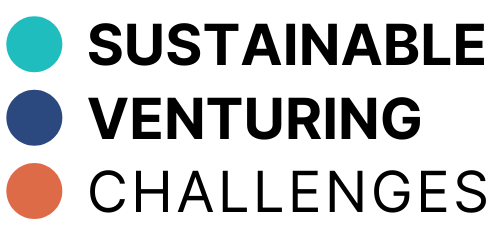
powered by ScaleUp4Sustainability
Carl von Ossietzky University of Oldenburg
Department of Business Administration, Economics and Law
Adj. Prof. Innovation Management and Sustainability
Ammerländer Heerstr. 114-118, 26129 Oldenburg, Germany
Legal notice and data protection

The platform was created as part of the ScaleUp4Sustainability project. ScaleUp4Sustainability (Project Reference: 601150-EPP-1-2018-1-DE-EPPKA2-KA) is funded by the Erasmus+/Knowledge Alliance Programme of the European Union.

